
I’m a member of the Procter & Gamble retiree Yahoo Group. There are more than 3,000 very smart dudes and dudettes in this conference. We share questions and answers on all kinds of subjects from wallpaper removal to how to make your retirement fund last a lifetime and a whole lot more. Recently folks were talking about inflation. I shared the following with the group.
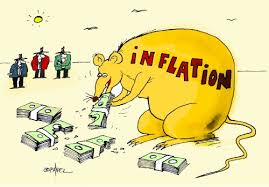
I wanted to offer up my thinking about inflation. I just threw this note together on a moment’s notice. For the most part, I don’t give inflation a second thought.
I hope the numerical aspect of my explanation doesn’t cloud the points I’m trying to make. My tax accountant once told me, “You’re the only sales guy I ever saw replicate all of the U.S. tax forms into an Excel spreadsheet. Normally the only people who do that are engineers”. I took that as a compliment. It was a compliment right?? Nevertheless, hang with me for a moment and I’ll tell you why inflation is a non-starter for me.
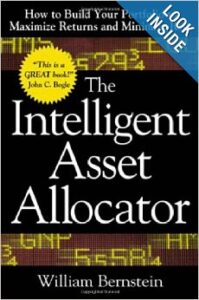
I retired in 2002. At the time I was, and still am, a follower of William Bernstein investment theory. What is that? Loosely translated it means investing in a broadly diversified portfolio of stocks and bonds (can be mutual funds) that charge very low fees.
Since the day I retired, I’ve been in the same eleven stock and bond mutual funds. Most of these funds are index funds. Over the past 14 years, my annualized ROI is 7.8% (using the modified Dietz measurement method). That’s about what might be expected from a 65% stock/35% bond portfolio. I manage our retirement portfolio.
Below is a link to my personal investment strategy. I will tell you this. I have zero intention of changing my investment strategy regardless if inflation is 1% or 15%. Here’s that link:

When one thinks about the future rate of inflation the very LAST inflation number I would consider would be anything related to the consumer price index. I’m not concerned about a “basket of goods” I’m concerned about MY “basket of goods”.
At 68 years of age, I’m not all that concerned what a new car will cost in 30-40 years based upon some high inflation number. I do want to be aware of how much the expenses I expect to incur could inflate over the rest of my lifetime will be. That’s MY inflation rate.

Let me explain just a bit further if you’re still with me. We have tracked our expenses in a budget form for many years. Every penny we spend falls into one of the categories listed below. Every penny? Yes, every penny. I’ve been using these categories since 1993.
Mortgage*
Home Equity Loan
Property Tax*
Electric*
Phone
Water/Sewer/Trash
Insurance*
Direct TV & Internet
Gas Heat
Credit/Checks
Vacation & Entertainment
Home Improvement
Medical
My Car Payment*
My Wife’s Car Payment*
I know the exact rate of inflation for each of the expense categories followed by an *. As an example, our mortgage rate is fixed for many years to come. Therefore our inflation rate for our mortgage is zero.
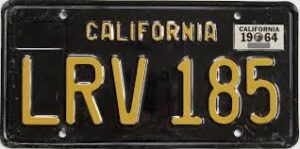
In California, property tax rates are capped at a maximum 2% annual increase. We have solar so there will be no increase in our electricity expenses. About half of our insurance (2nd to die life) is fixed with no increases in the future at all. Finally, our cars are new and could probably last through the remainder of our driving years if needed. That probably won’t be the case because I enjoy the “Randy Lewis New Car Buying Method” too much!
The expenses categories followed by an * (with electric and both cars being zero) account for about 53% of our before tax budget. Our fixed and fully known “inflation” rate (based upon weighted averages) for 53% of our expenses (those with an *) is 0.4%
Our remaining expenses are subject to inflation. Since the categories of “credit/checks” and “vacation and entertainment” account for 72% of our expenses that can inflate I would want to watch them the closest.
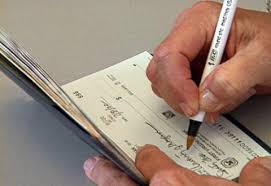
By the way, the “credit/checks” category is made up of everything we charge on a credit card or write a check for (people still write checks right?) that does NOT fall into one of the other more specific categories.
The expense categories of home equity loan, phone, water/sewer/trash, insurance (car/house), Direct TV & internet, gas heat, home improvement and medical only account for 13% of our total non-tax expenses and 28% of the expenses that can inflate.
How about a quick note on medical expenses. For us, they don’t amount to much now. When the time comes and they do I don’t suspect we’ll be spending nearly as much on vacation & entertainment.
If inflation in the categories of our life were to inflate a very large amount (10-15%) there are some very easy ways to combat those increases. Here’s an example. The category of vacation & entertainment is 20% of our total non-tax expenses.

Since I’ve retired we have traveled an average of 150-175 nights every year. Yes, we travel more than most. If those travel expenses were to inflate a good deal we could stay at a Holiday Inn instead of a Marriott. We could cut back on our travel to 125-150 nights compared to what we do now.
The point being, lots of expenses offer the option of downsizing the quality of the expense (Holiday Inn vs. Marriott) or the frequency of the expense.
In summary, I’d like to emphasize the main points of my strategy with inflation. Regardless of the inflation rate, the stock and bond mutual funds I invest in will not change. Why would that be needed?

I know what “my” inflation rate is going to be for the rest of my life on expenses that account for more than 50% of our budget. Using a less expensive alternative or using less of the inflating product can control the other expenses that can inflate. Inflation is a non-starter for me.
Randy Lewis
San Clemente, California
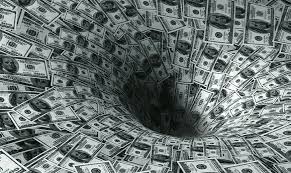
P.S. Let’s say that inflation went to 15% per year. Wow! That would be fantastic. In California, houses are very expensive. If my home value increased by 15% each year that increase would dwarf the 15% increase on the expenses that can increase with inflation as described above.
Every night when I go to bed, after praying for my family and friends, I thank God for all of his blessings. On the financial front, P&G accounted for much of that. Now I will have to add something to that prayer. Dear God, please bring on hyperinflation!!
